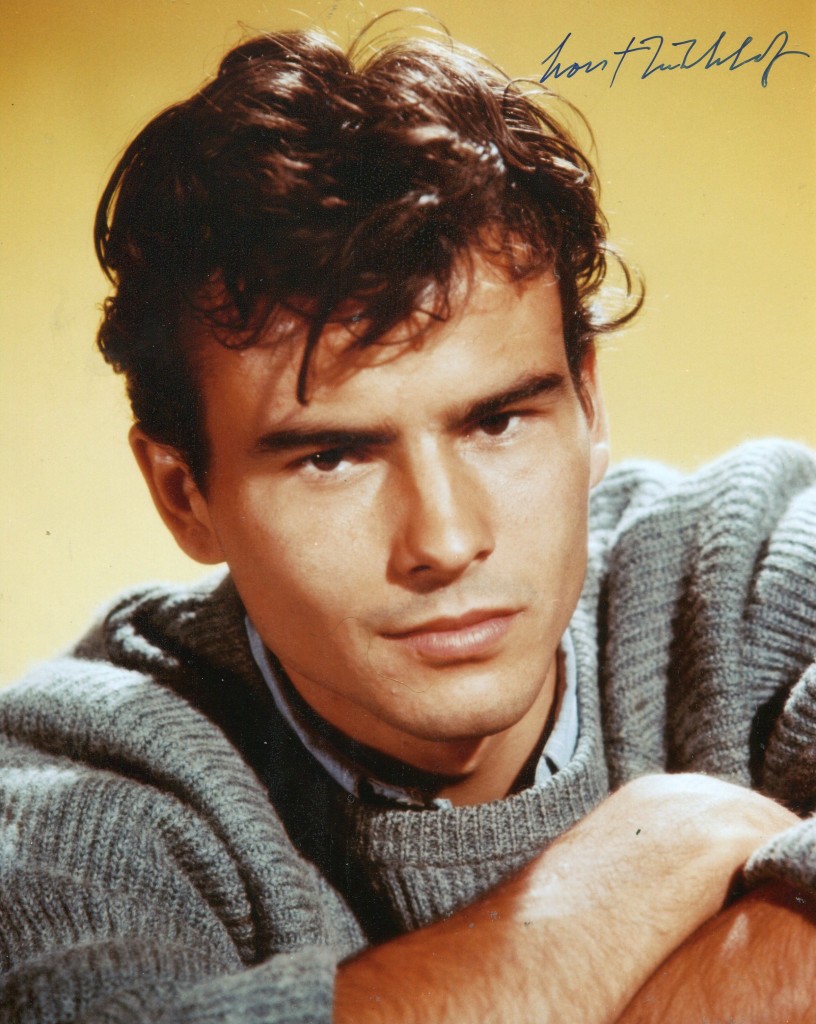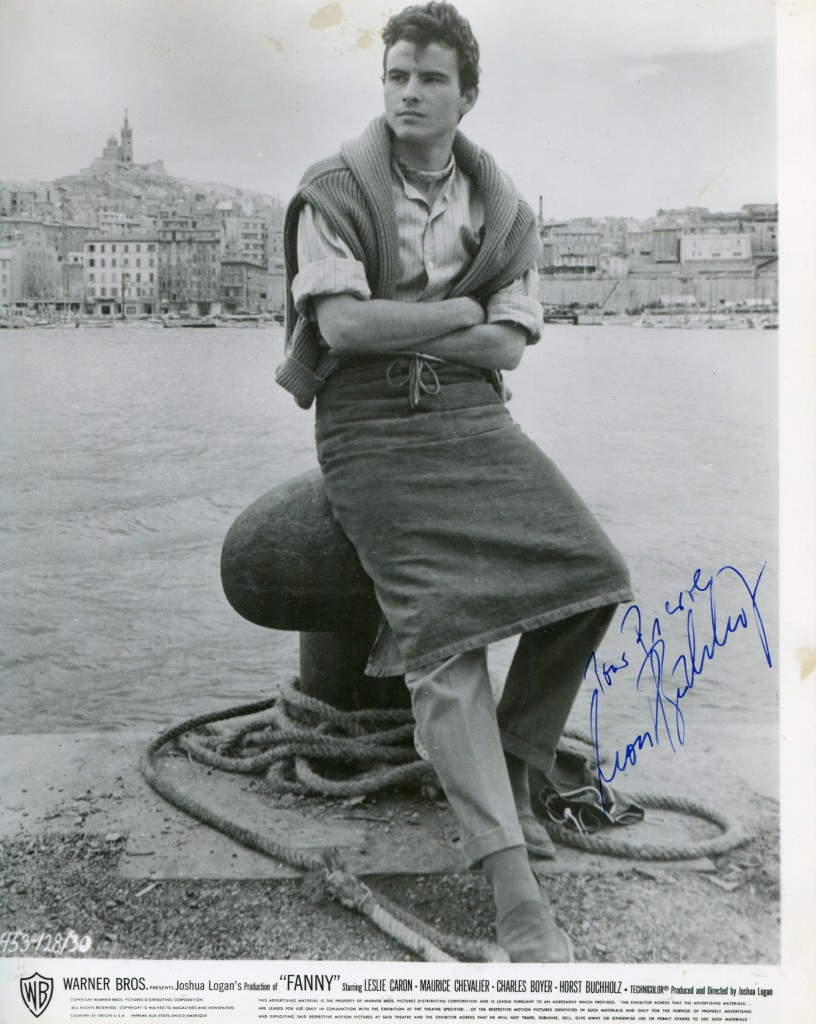

HORST BUCHHOLZ OBITUARY IN “THE GUARDIAN” IN 2003.
The refusal of German audiences to contemplate subtitled films ensured useful, if obscure, work for their actors, and Horst Buchholz, who has died aged 69, found – as Henry Brookholt – such employment invaluable in the early stages of his career.
Buchholz, who achieved fame as one of The Magnificent Seven (1960), shed his obscurity by winning an acting award at the Cannes film festival for his third film, Sky Without Stars (1955), by the outstanding German director Helmut Käutner. Two years later, he played the title role of Thomas Mann’s The Confessions Of Felix Krull, and began an international career. He appeared in Britain as the fugitive Polish sailor befriended by Hayley Mills, making her mesmerising screen debut, in Tiger Bay (1959).
After the success of that intelligent thriller, there was the inevitable, though temporary, hop to Hollywood, which characteristically failed to make constructive use of Buchholz’s abilitites. His one remarkable role was as the irritating youngster, Chico, in The Magnificent Seven, and it was a tribute to his talent and personality that he successfully recreated the role immortalised by Toshiro Mifune in the Samurai version of the story.
Buchholz, who was born in a poor suburb of Berlin, was evacuated to the countryside during the war. After his father was killed, he fled a children’s camp in Bohemia and returned to the city. He abandoned school to study acting, making his debut – aged 15 – in Emil And The Detectives. He also worked on radio and in dubbing theatres, and, thanks to a facility for languages, became fluent in English, French, Spanish, Italian and Russian.
His brooding good looks led to stage work, including roles in Jean Anouilh’s School For Fathers and Shakespeare’s Richard III, and a screen debut in the fantasy Marianne of My Youth (1955), after its director Julien Duvivier saw him at the Schiller theatre. What made him a star in Germany were his James Dean-style roles as rebellious youngsters, most notably in Die Halbstarke (1956), shown in Britain as Wolfpack.
Buchholz’s international career did not lessen his popularity at home, and he continued to work in films and television throughout Europe, while living principally in Switzerland and maintaining apartments in Paris and Berlin. Hollywood offered him little, and after the lumpen Fanny (1961), his next film after the classic western, he relished his role as the communist lover in Billy Wilder’s satire on American consumerism, One, Two, Three (also 1961).
He then took on Nine Hours To Rama (1963), making a convincing character of Naturam Godse, the Hindu extremist determined that Gandhi should be assassinated. This rather dull film launched a decade in which Buchholz starred mainly in dismal co-productions, including Marco, The Magnificent (1965), Cervantes (1966) and The Great Waltz (1972), in which his portrayal of Johann Strauss Jr was drowned in a welter of melody.
Buchholz returned to Germany to star in But Johnny (1973), and subsequently divided his time between lucrative television movies and films in America. Among his better television work was The Savage Bees (1976), Raid On Entebbe (1977) and Berlin Tunnel 21 (1981), in which he played an engineer helping refugees escape to the west. On the big screen, he was in the spy drama Avalanche Express (1979) and more prestigious films, including Wim Wenders’ Faraway, So Close! (1993), and enjoyed personal success as the cultured Dr Lessing in Robert Benigni’s Life Is Beautiful (1997).
The following year, he provided the voice of the Emperor in the German version of the animated adventure Mulan, estimating that he had worked on the dubbing of more than 1,000 films throughout his career. Among his last screen appearances was a documentary, Guns For Hire; The Making Of The Magnificent Seven (2000) and an old-fashion Europudding thriller, Enemy (2001).
He is survived by his wife Myriam Bru, who gave up acting after their marriage in 1958, and their two children, Beatrice and Christopher, both of whom are actors.
· Horst Buchholz, actor, born December 4 1933; died March 3 2003

